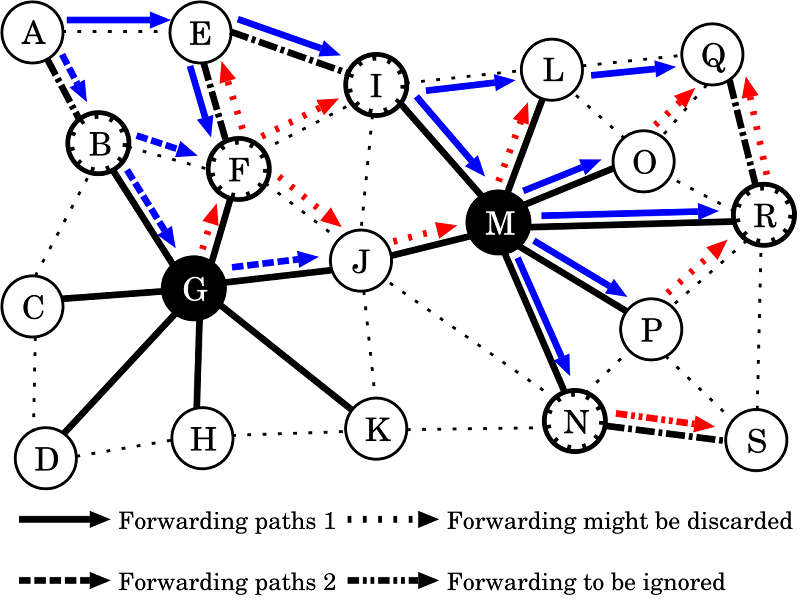December 2017 Issue
Research Highlights
Hierarchical Opportunistic Routing with Moderate Clustering for Ad Hoc Networks
The self-organizing nature of ad hoc networks generally has an advantage that the networks are free from fixed infrastructures such as APs (Access points). However, this also has a disadvantage that the networks are unstable and unreliable compared with wired and fixed communication.
Although there are a lot of routing protocols to overcome the drawbacks of ad hoc networks, route-based packet forwarding of the protocols suffer from the adaptation problem due to dynamic topology changes.
Ryo Yamamoto and colleagues at The University of Electro-Communications、Tokyo, describe a novel routing paradigm called Opportunistic Routing (OR), which is broadcast-based forwarding scheme and does not rely on a specific route to improve route diversity and end-to-end reliability.
The main difficulty of OR adaptation in ad hoc networks is its forwarding decision done by each node since the eligibility confirmation might be difficult in autonomous and distributed environment. Thus, we introduce a concept of clustering and hierarchization into OR to make Cluster Heads (CHs) as a guide to forward packets toward destination nodes.

Computer simulations reveal that the proposed method could utilize the advantages of OR concept eliminating its drawbacks. Namely, it could achieve higher delivery ratio with less packet forwarding compared with existing conventional ORs.
The results also imply the proposed method could be utilized in various kinds of environment if the guide could be found properly.



